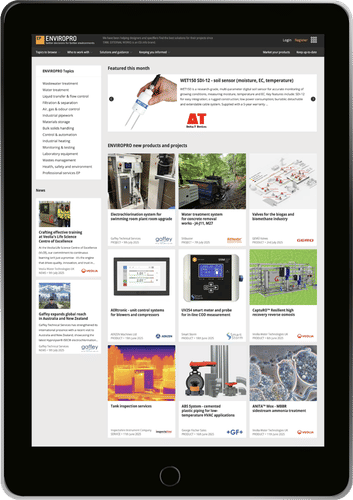Vertical flow reed beds are a type of natural wastewater treatment system that ARM specializes in, to treat wastewater in an eco-friendly way. They are similar to horizontal flow reed beds, using a lined trench for wastewater treatment. However, unlike horizontal systems, vertical flow beds are designed to drain freely rather than consistently remaining full with water.
In vertical flow systems, wastewater is applied in batches across the surface of the bed until it becomes temporarily flooded. As the water drains down through the bed, air fills the space left behind. When the next batch of water arrives, it traps this air, creating a well-aerated environment that boosts the growth and activity of beneficial microorganisms. This setup helps vertical flow systems remove ammonia more effectively than horizontal flow systems because they have higher oxygen levels and can handle stronger wastewater.
To deliver the wastewater in batches, these systems use pumps, flushers, or siphons, with a preference for siphons because they don't require electricity. The wastewater is spread over the bed, sometimes with the help of a sand layer, and as it flows through the bed, it gets treated. The treated water is collected in pipes at the bottom and then discharged through an outlet.
The benefits of using a vertical flow reedbed:
Effective Pollutant Removal: They excel at removing pollutants such as organic matter, nutrients (like nitrogen and phosphorus), and suspended solids.
Compact Design: Vertical flow systems often require less space compared to horizontal flow systems, making them suitable for areas with limited space.
High Treatment Efficiency: The vertical flow allows for enhanced aeration and oxygenation of the wastewater, improving treatment efficiency, especially for high-strength or variable flows.
Improved Odour Control: These systems control odours due to the efficient aeration process and the vertical flow path.
Low Maintenance: Vertical flow reed beds typically have fewer moving parts and require less frequent maintenance compared to mechanical treatment systems.
Energy Efficiency: They do not require mechanical aeration or pumping, which reduces energy consumption and operational costs.
Reduced Sludge Production: The design helps in reducing the amount of sludge produced, which can lower disposal costs and environmental impact.
Sustainable and Low Impact: Contributes to sustainable wastewater management by promoting natural filtration and reducing environmental footprints.
ARM Ltd delivers reliable, sustainable wastewater management with free outline proposals and a proven track record, utilising 35 years of knowledge and experience in reedbeds.







